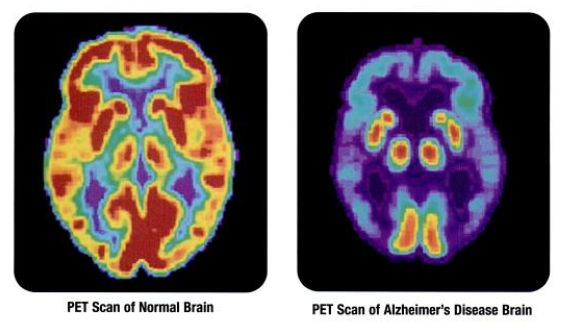Are PET Scans Effective To Diagnose Alzheimer’s? Government Weighs Their Worth

The federal government is still uncertain whether to cover the costs of positron emission tomography (PET) scans for the use of identifying Alzheimer’s disease through brain scans. Though PET scans have proved helpful for doctors in ruling out the disease, it is still debated whether the investment will prove to boost actual Alzheimer’s diagnoses. The ability of PET scans to detect and diagnose the disease is still limited.
PET scans each cost about $3,000 to $5,000. They are different from a CT or MRI scan because PET scans show the metabolic changes occurring in an organ or tissue at the cellular level. A radiotracer is injected into the body, which then travels to and is absorbed into the organ or tissue that will be scanned.
Steven Pearson is president of the Boston-based research group, Institute for Clinical and Economic Review. He urged that scientists need to do more research before investing in PET scans.
"The evidence in favor of beneficial effects of this test is among the weakest I have ever seen come before the Medicare Coverage Advisory Committee," Pearson said.
The Medicare Evidence Development & Coverage Advisory Committee (MEDCAC) is a group that guides the Centers for Medicare & Medicaid Services (CMS) in choosing what kinds of new technology, medical literature, or medical services is appropriate to be included under Medicare. Though the Centers for Medicare & Medicaid Services will make a final decision on the PET scans, they have already noted that these scans shouldn’t be covered aside from research reasons.
Alzheimer’s is associated with the build-up of the protein beta-amyloid, which causes plaques to develop on the brain. PET scans are able to identify if a person's brain has beta-amyloid build-up, but this doesn’t necessarily mean they can diagnose a person with Alzheimer’s. If someone lacks beta-amyloid, doctors can rule out Alzheimer’s; if they have beta-amyloid, it still doesn’t always signify clearly that they will eventually develop Alzheimer’s.
The Alzheimer’s Association notes that “[w]hile elevated beta amyloid plaques are one of the defining pathologic features of Alzheimer’s, many elderly people with normal cognition also have elevated levels of these plaqes, as do people with conditions other than Alzheimer’s dementia. Therefore, the potential clinical use of amyloid PET requires careful consideration.” Because of this limitation, CMS remains hesitant.
Doctors and neuroscientists, however, believe that PET scans are useful for patients. Jeffrey Cummings, a neurologist and director of the Cleveland Clinic Center for Brain Health, told USAToday that “We know that clinicians are not very good at diagnosing Alzheimer’s, and this is a very helpful adjunct to the diagnostic process.” He also noted that due to the cost of the scans, their use should be restricted.



























